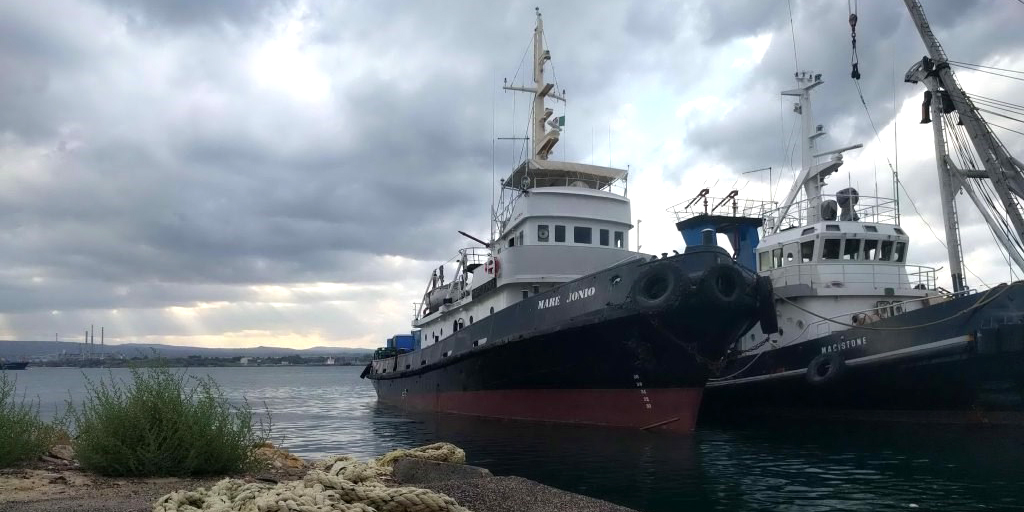editoriale
We’ve launched a migrant rescue ship to resist the racist right in Italy
In questo articolo comparso sul Guardian, Michael Hardt e Sandro Mezzadra spiegano le ragioni della missione Mediterranea: “We joined this mission because of our desire not only to help provide humanitarian aid for those who risk death at sea but also to intervene in the toxic political atmosphere of Italy, Europe, and beyond”

We are part of an activist project that launched the Mare Jonio, a rescue ship that is now motoring toward the “search and rescue” zone off the coast of Libya. In contrast to rescue ships operated by humanitarian NGOs, which have been blocked in recent months by the Italian government, the Mare Jonio flies an Italian flag and is mainly operated by an Italian crew. It can thus not legally be refused entry to an Italian port.
We also created a platform, Operation Mediterranean, which coordinates the entire operation. It also supports our wider goals: to foster discussion and promote action to contest current migration policies and to challenge the aggressive atmosphere of racism. The platform’s website provides extensive information about participants, supporters, and funding.
We joined this mission because of our desire not only to help provide humanitarian aid for those who risk death at sea but also to intervene in the toxic political atmosphere of Italy, Europe, and beyond. Faced with a seemingly interminable state of emergency in which governments enact racist and reactionary policies, often with the support of electoral majorities, we need to protest against them and resist them to protect the vulnerable, and defend past gains.
But too often people assume that we can do no more than that. For us, an audacious enterprise like launching this migrant rescue ship demonstrates that yes, we can. Rather than merely reacting to the daily outrages of the ruling parties or parrying the demonstrations of fascist groups, we can and must think big and act boldly outside of the established political structures in order to create a different, more just and more democratic society.
The Mare Jonio set off on the anniversary of the 2013 disaster in which nearly 400 migrants drowned off the Italian island of Lampedusa. In the years since that tragedy, Italian and European policies have, in fact, made the passage of migrants across the Mediterranean even more dangerous and lethal while obstructing humanitarian aid efforts. As a result, migrants continue to die at sea in alarming numbers.
The project takes place against the backdrop of an Italian government that has sought repeatedly to block and even criminalise humanitarian assistance. In June 2018, for example, Italy turned away the Aquarius, a rescue ship contracted by the NGO SOS Méditerranée carrying more than 600 migrants rescued at sea, refusing to allow the ship entry to an Italian port. In August, the Ubaldo Diciotti, an Italian coast guard ship, arrived at the port of Catania with more than 170 rescued migrants, but the Italian government refused at first to let them disembark and sequestered them on board. Finally, on 1 October, Domenico Lucano, the mayor of Riace in southern Italy who is well known for creating a programme to aid and settle migrants in his town, making it a real sanctuary city, was arrested for “aiding illegal migration.”
Italy’s anti-migrant campaigns, which this project contests, run parallel in several respects to those in the United States. Just as European governments have made the Mediterranean crossing more difficult and hazardous for migrants, making the sea into a graveyard, so too the US Border Patrol has made migrant routes through the desert more perilous and deadlier. Similarly, the cruelty of the Trump administration’s family separation policy finds echoes in the squalor of the migrant camps and barbarity of Italian and European methods to make the lives of migrants unbearable.
Keep in mind that these anti-migrant campaigns coincide with rising racism on both sides of the Atlantic. Matteo Salvini, the Italian minister of the interior who has spearheaded these policies, declares them to be an essential part of his commitment always to put “Italy first”. When refusing to allow the rescued migrants to disembark in August, for instance, he echoed statements typical of Donald Trump: “for me, Italians come first, then the rest of the world” – and he put that sentiment into action with cruel policies.
And Italy, unfortunately, is not alone. Governments throughout Europe, pushed in many cases by growing rightwing political forces, enact various permutations of anti-migrant policies. President Trump may gain the most attention for his rhetoric and actions against migrants, but ruling European politicians are unfortunately his equal in this regard.
We know this project is hazardous, and we don’t underestimate the difficulties ahead. In many respects we are swimming against the current. We are well aware that if the Mare Jonio rescues migrants and brings them to an Italian port, a confrontation with the Italian government is possible. The government could block the ship and perhaps even criminalise participants for aiding migrants. Legal scholars are part of the platform, and are at the ready to respond to such confrontations.
We are also swimming against the current, more importantly, in the sense that in Italy, as elsewhere in Europe and the US, there is a growing hegemony that is hostile to migrants and that, often in the name of security or the preservation of civilisational values, seeks to close borders, refuse asylum, and expel those who have already arrived. This fact only makes it more urgent, in our view, to act now with all the means at our disposal.
And we hope that the Mare Jonio can demonstrate that, even in times like these, we are not powerless but can accomplish audacious interventions aimed at real social transformation. At the end of the day we may discover that the dominance of the right is much weaker than it seems – and that it can be effectively challenged and overthrown.
Articolo ripreso dal sito The Guardian
